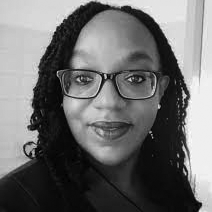
Bio
Jean – Marie Molina is a philosophical educator, general and family educator, author and senior lecturer in study success at a university of applied sciences in the Randstad. She specialized in, among others: academic retention, learning, study success and academic performance, child rearing and education, family and relationship relationships from a theoretical, historical and intercultural perspective. Her current focus is on academic retention among students, metacognition and teacher professionalization in the field of evidence informed teaching. In 2006 she introduced her (educational) method called “Tough Love” to the world. The model based on the principles of applied behavioral sciences, educational psychology and neurocognition is used to improve the sense of competence, learning.
Lately she recognized that many students struggle with completing a degree. For years it has been assumed that students in the Netherlands who run this risk and who study for a long time come from traditional immigrant families with a low socio-economic status. But that picture is quickly changing. More and more students, from highly educated families with strong support systems, are at risk and fail in college and university. She believes this is mainly due to the way children are taught to interpret challenges and failures as negatives that prevent their response from motivating them to achieve the goal. Also, most teachers are not professionalized in the best strategies for learning how to learn best.
What helps her enormously in her work is that she can make complex and abstract principles small and manageable. “I help you to learn to learn” says she in one of her intoroductions. Moreover, she likes to motivate you to master ‘learning’. She added that “You will reap the benefits not only during your studies, but in your further career”.
Keynote Title: #Tough Love – Changing Stories to Change Lives
We have always been taught that we are products of our environments. For a large part this is true. However being a product of our environments is. But what if we could change this process? What if we were given tools that enable to interpret and react differently, powerfully, more effectively to our circumstances thereby enabling us to recreate our own environments, our own reality? In this key note we embark upon a journey whereby we will take a novel, yet critical look at the role of an important concept in our experience of the world: our stories.
